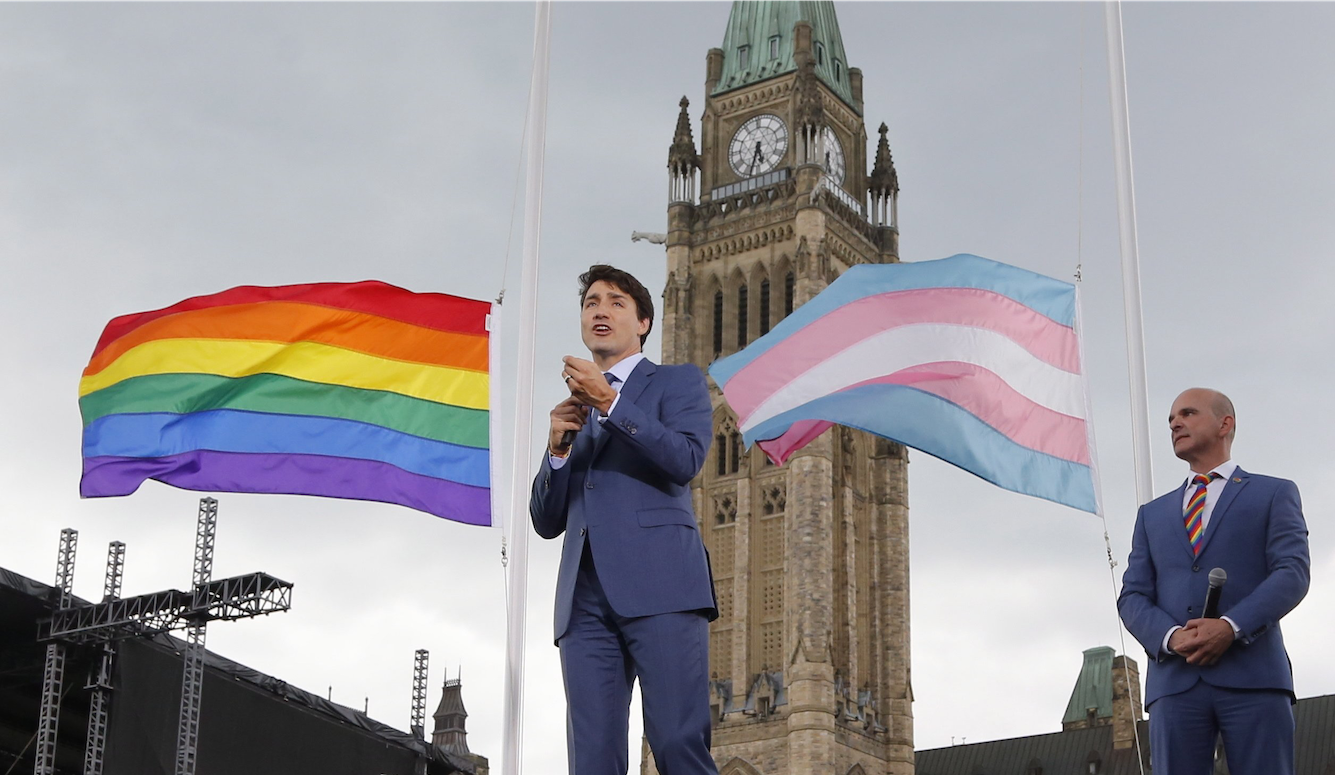Trans Activism
How Australian Law Pushes Vulnerable Women Towards Hiring Male Carers
The law prioritises a man’s sense of his identity over women’s safety, bodily integrity, privacy, dignity, and comfort.

Lee Hazel finds herself in a difficult position. She knows what is right, and what her rights should be. But she lives in a country that sees things differently from her, and does not protect her rights: in particular, her right to disability assistance from a carer of the same sex.
Lee is a woman in her late 30s. Three years ago, she was diagnosed with multiple sclerosis (MS). She recently wrote to the Australian Sex Discrimination Commissioner, asking whether she could—under the permanent exemptions to the Sex Discrimination Act—advertise for a biologically female personal disability carer.
MS is a neurodegenerative condition that affects the central nervous system and can severely impact the sufferer’s quality of life. It can disrupt a person’s control over their body, causing loss of control of limbs, incontinence, slurred speech, fatigue, and reduced mobility, and it can cause sensory issues such as numbness and tingling. It affects different people differently: a person diagnosed with MS at 30 may never experience symptoms severe enough to cause disability or may not start experiencing such symptoms until the age of, say, 60. But Lee wasn’t that fortunate. She began to experience serious symptoms soon after her diagnosis.
In her reply to Lee, Sex Discrimination Commissioner Anna Cody noted that, while there are permanent exemptions for sex in relation to “employment to perform domestic duties at a person’s residence” including where needed to preserve decency or privacy, these permanent exemptions do not extend to gender identity. (Note that this is not a legal determination: ultimately, the relationship between sex and gender identity in sex discrimination law will have to be tested in court).
So, what does this mean? Picture a typical 50-year-old man. This man has a male body. His bodily experiences have all been male ones: for example, he has undergone male puberty, experienced testosterone surges, and perhaps dealt with some male-specific health issues, such as testicular cancer. Because this person is visibly and obviously male, people instinctively class him with other males when they perform quick, heuristic reasoning. This is true whether his maleness is a positive factor in the given context—I am struggling to lift this heavy object, are there any men around who can help me?—or a negative one—I am walking home alone late at night, are there men walking behind me who might murder or rape me?
Cody’s response to Hazel is probably accurate as to the law. The Sex Discrimination Act is federal law designed to protect against sex discrimination. It has built-in exemptions intended to make sure that people can’t invoke “sex discrimination” to prevent others from accessing sex-selective services that advance substantive equality. In other words, you can’t refuse to hire a woman accountant because you think women are bad at maths; but you can refuse to deliver women’s health services to men.
That the permanent exemption relates to sex but not to gender identity means that Lee can advertise a position for a personal disability carer who is legally female, but that category would include a biological male who has changed the sex on his birth certificate, or a biological male whose gender identity is “female” (or who sees himself as a “woman” or “transwoman”). She cannot advertise to hire a personal disability carer who is simply female full stop: that is, biologically female. If a 50-year-old man of the kind described above decides that he has always felt more like a woman, and declares a “female” gender identity, then Lee cannot legally refuse to hire him on the grounds that he is biologically male. Under the law, his gender identity determines his legal sex. This is true even if he has not changed the sex on his birth certificate. He can access the legal entitlements of biological females simply by declaring a “female” gender identity. Were Lee to refuse to hire someone for being biologically male, she could be accused of discriminating against him on the basis of his gender identity. (As a legal female, he would be considered a legitimate candidate for a female job.)
So, if Lee were to advertise for a personal disability carer and our typical 50-year-old man were the best qualified candidate, Lee would risk being accused of discrimination were she to refuse to hire him. (She might avoid this complaint if she hired no one at all, but that would mean forfeiting the assistance she so badly needs.) Could this really have been what the legislators intended when they drafted the Sex Discrimination Act?
When we spoke in mid-December, Lee told me why she feels strongly about this issue. For her, it’s both personal and political. She’s worried about how her MS will develop and how much assistance she will need, and she wants to be certain that she can get that assistance from someone biologically female. But she has also become concerned about the erosion of women’s sex-based rights as a result of gender identity ideology. Lee is a detransitioner, having previously identified as first “nonbinary” and then as a “man” and having taking testosterone for more than 6 months. She is now gender-critical. (I met Lee in July, when she took my feminism class at the University of Melbourne; she later ran in the student union elections for women’s officer).

I asked Lee why it was so important to her to be able to employ a female carer. She explained that there are two different types of care that a person with a disability may need. The first is help with domestic work like cleaning, shopping, and cooking. The other is intimate care, for example, help with showering, grooming, and toileting. Because Lee has had bad relationships with men in the past, and bad men in her life, she is wary about letting a male stranger enter her home to carry out that type of work. She says that she would find that very uncomfortable, and would be alert to the possible risks. Even domestic work can involve quite personal matters: for example, doing laundry requires handling underwear, including rinsing out period underwear (which some people with MS also use for incontinence issues). Because a female carer is likely to have had similar bodily experiences to a female client, it feels less like a violation of privacy and dignity to allow her to carry out such tasks and is also less embarrassing and uncomfortable. This is especially important, obviously, in the case of intimate bodily care.
I asked Lee whether her primary concern was the potential risk of sexual assault from a male-bodied carer. After all, women with disabilities are much more likely to be sexually assaulted than women without disabilities. According to the Australian Institute of Health and Welfare, 25% of women with disabilities have experienced sexual violence after the age of 15, compared to 15% of women without disabilities; and 30.4% of women with a severe or profound disability and 24.5% of women with other types of disability have experienced sexual violence since the age of 15, compared to 15.2% of females without a disability. (For the latter figures they're drawing on data from the Australian Bureau of Statistics).
Lee explained that, for now, while she still has pretty good functioning, she’s probably more concerned about the similar bodily experience aspect. But she predicts that she will become more worried about her personal safety in the future—given that her capacity for self-defence, and her ability to physically escape a bad situation, will considerably decrease as she loses control over her body.
So, what are Lee’s options?
1) Try to change or clarify the law, such that it explicitly states that a person’s gender identity does not determine their legal sex.
2) Apply for a temporary exemption, under the Sex Discrimination Act, for the right to hire a biologically female carer (i.e., to be able to exclude candidates on the grounds of both sex and gender identity),
3) Advertise for a biologically female carer, and hire one, regardless of what the law may permit.
4) Pretend to obey the law: advertise for a female carer, and if any males apply, trans or otherwise, simply don’t hire them.
5) Actually obey the law: advertise for a woman carer, and hire the best-qualified person, trans or otherwise.
There are reasons to believe that Lee might be able to achieve (1). The law already grants competitive sporting bodies a permanent exemption from the Sex Discrimination Act. This allows them to discriminate on the grounds of gender identity, as well as sex. This shows that there is already Australian legal precedent for understanding that gender identity does not always supersede sex. This reasoning would simply need to be extended to other contexts, including disability care. (However, there is another way of understanding this that is less encouraging: the legal sex category “female” encompasses both “transwomen” and “cis women” and, although it is permissible to discriminate against the “transwomen” in order to preserve fair competition, that’s not because sex takes precedence over gender identity but because it is sometimes permissible to make distinctions within sex categories.) Despite that caveat, campaigns to protect sex-based rights have been successful in other countries, most notably in the UK. So, Lee might be able to change the law, but that would be a medium- to long-term project. It won’t help her with what she needs right now.

Lee has a good prospect of achieving (2). The Lesbian Action Group recently applied for a temporary exemption to allow them to hold events for “lesbians born female” only—thereby excluding people on the grounds of both sex and gender identity—and were denied. But holding a public event is quite different from hiring a personal carer. Still, even if Lee were granted a temporary exemption, that would only help her personally, without solving the broader political problem, which affects all women with disabilities who need home-based assistance or care, and all women with an interest in sex-separated services more generally.
Options 3) and 4) would put Lee at risk of a hiring discrimination complaint, although 4) would be less risky. (We suspect that many women in Lee’s situation are simply quietly ignoring the law.) A legally female but biologically male applicant would be unlikely to know himself to be the best-qualified of the applicants, and therefore to be able to confidently claim that he had been discriminated against. But flouting the law is a risky strategy. If there were a complaint, Lee would have to defend herself, and if it went to court, she might be ordered to pay the complainant’s costs were she found to have acted illegally.
Then, there is option 5). Trans activists are likely to promote this option, which they see as a form of “desegregation”—a way of including “trans women,” rather than a violation of women with disabilities’ right to same-sex care. In this worldview, a male with a “woman” gender identity is a woman, and ought to be treated in the same way as other women are. Many people consider women like Lee and I to be prejudiced or old-fashioned because when we look at a transwoman, we see a biological male, rather than one of many diverse ways of being a woman. They think that society should insist on treating transwomen as equivalent to biological women. But those of us who look at a 50-year-old male and see a man find this strategy extremely wrongheaded. It prioritises minor injuries to a man’s sense of his identity over women’s safety, bodily integrity, privacy, dignity, and comfort—even in a woman’s own home, which ought to be a safe haven and refuge from the threats and challenges of the outside world.






